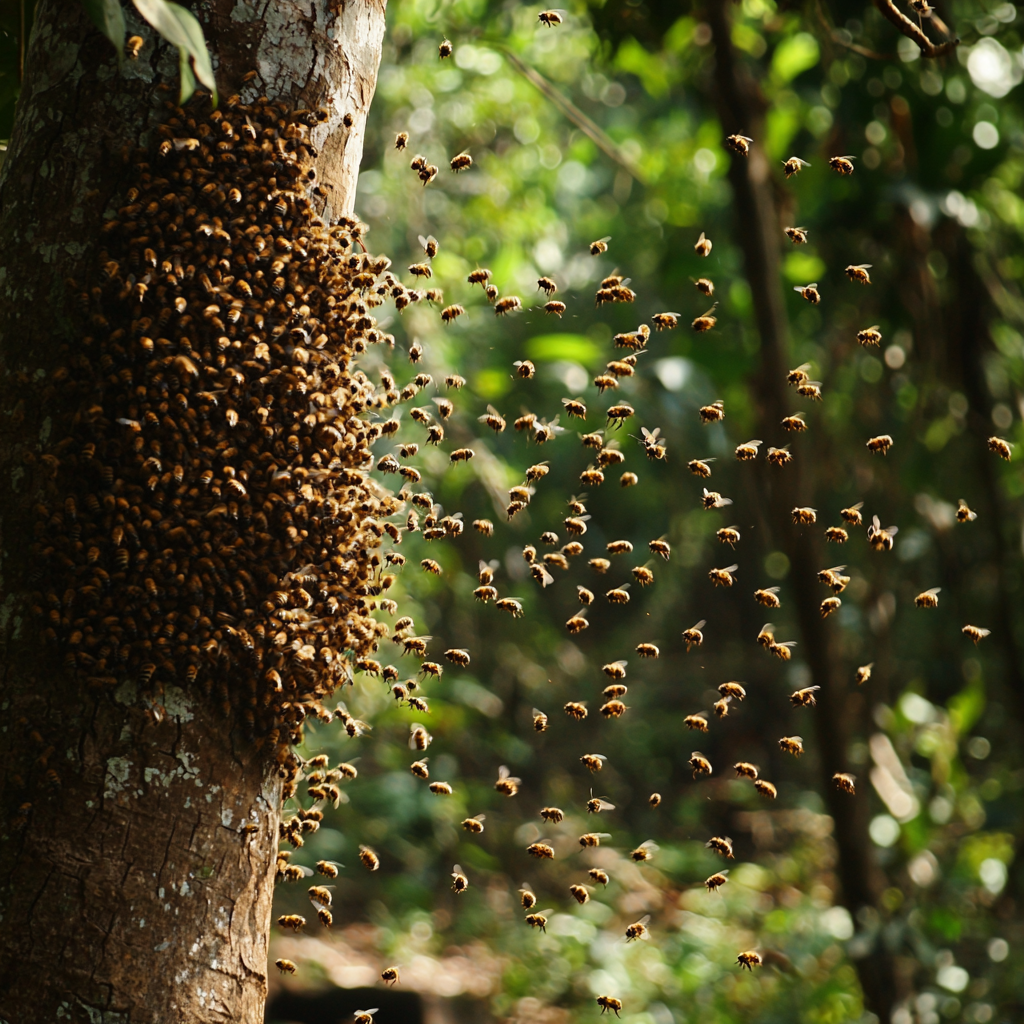In both language and perception, words carry weight beyond their literal meanings. The term “swarm” is a perfect example—while it accurately describes a natural and essential process in beekeeping, it has, over time, developed negative connotations in the public mind. Many associate swarming with chaos, aggression, or even danger, despite the fact that it is simply how honeybee colonies reproduce.
By reframing “swarm” as “colony expansion,” we not only shift the perception of the event but also highlight its true purpose: the natural, healthy growth of honeybee populations. This linguistic shift can have significant effects on how the public understands and appreciates bees, as well as how beekeepers communicate their practices.
Why Does “Swarm” Sound Negative?
Psychologically, the term “swarm” triggers associations that extend beyond its scientific definition. Consider the contexts in which it is most often used:
• Media and Popular Culture – “Swarm” is frequently linked to overwhelming numbers, unpredictability, and even threats. From horror movies to alarmist news headlines about “swarms of insects” invading spaces, the term evokes imagery of disorder and loss of control.
• Human Evolutionary Bias – Our ancestors needed to be wary of large groups of stinging insects, so the concept of a “swarm” naturally triggers a primal caution response. Even though honeybee swarms are not dangerous, the association remains.
• Linguistic Framing – Words influence perception. The same event can be seen differently depending on how it’s labeled. Compare “swarm” to “migration” or “expansion”—the latter terms sound purposeful and structured, while “swarm” suggests unpredictability.
Colony Expansion: A More Accurate and Positive Term
By replacing “swarm” with “colony expansion,” we shift focus from the perceived disorder to the biological necessity of hive reproduction. This alternative framing:
• Emphasizes Growth – “Expansion” implies something positive and necessary, much like how businesses expand when they are successful.
• Reduces Fear – The term “colony expansion” feels controlled and intentional rather than chaotic.
• Aligns with Conservation Efforts – Bee populations are under threat, and reframing swarming as a beneficial process can help the public appreciate its role in maintaining healthy ecosystems.
• Encourages Beekeeping Education – For new beekeepers, understanding that colony expansion is a sign of health rather than a problem can shift their approach to hive management.
Shaping Public Perception Through Language
Changing public perception starts with those who communicate about bees—beekeepers, educators, scientists, and conservationists. By consciously using “colony expansion” instead of “swarm,” we can help reshape how people think about bee reproduction.
Just as conservationists rebranded “killer whales” as orcas to improve public perception of these intelligent marine mammals, a similar linguistic shift can work for bees. The more we emphasize growth, renewal, and natural balance, the more likely people are to see colony expansion as a wonder of nature rather than something to fear.
Conclusion
Words matter. While “swarm” is technically correct, its psychological baggage distorts the public’s understanding of an essential process in the life of a beehive. By embracing the term “colony expansion,” we can help shift perceptions toward appreciation, understanding, and better stewardship of these incredible pollinators. Beekeepers, conservationists, and educators have the opportunity to lead this change—one word at a time.


